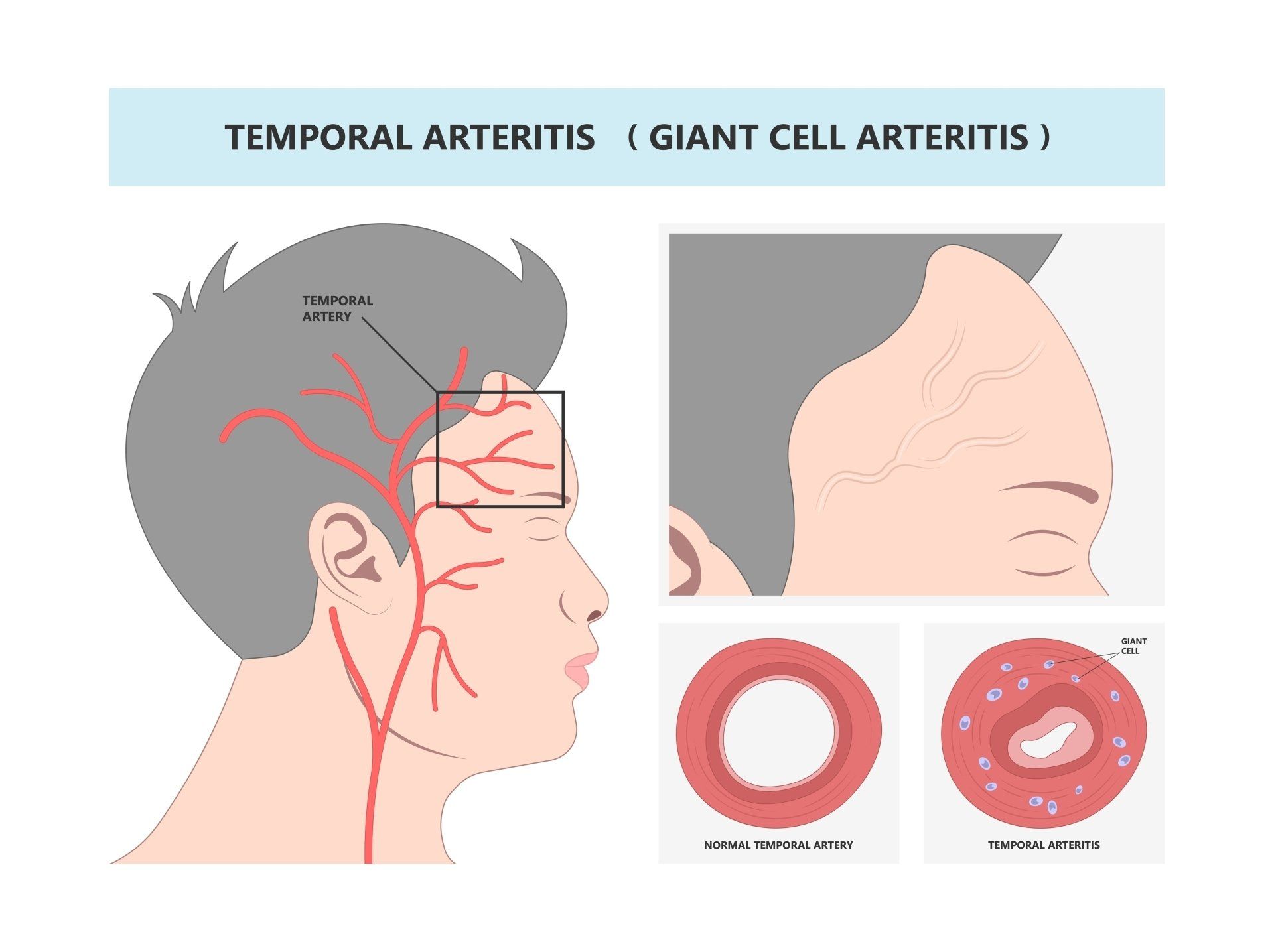Temporal Arteritis

Temporal arteritis is an inflammatory autoimmune disorder that causes inflammation of large blood vessels. It is uncommon, occurring in 20 in every 100,000 women over age 50. It is frequently associated with polymyalgia rheumatica.
Symptoms may include headaches, pain over the temples, changes in vision/double vision, jaw pain or difficulty opening the mouth. If left untreated, it can lead to permanent blindness because the arteries to the eye can become blocked because of the inflammation in the artery.
Patients are frequently referred to a vascular surgeon by a rheumatologist, primary care provider, or eye doctor when they have a high clinical suspicion and lab work shows elevated inflammatory cells in the blood. The vascular surgeon performs a biopsy (removing a section) of the temporal artery in the scalp. This is typically performed in the operating room as an outpatient. The temporal artery can be removed because there is plenty of blood flow through other arteries to the scalp. The pathologist then makes the diagnosis by microscopic evaluation.
This disorder is treated with steroid medications. These medicines may be discontinued by the rheumatologist after several months, but if it recurs, may require long term steroid treatment.


